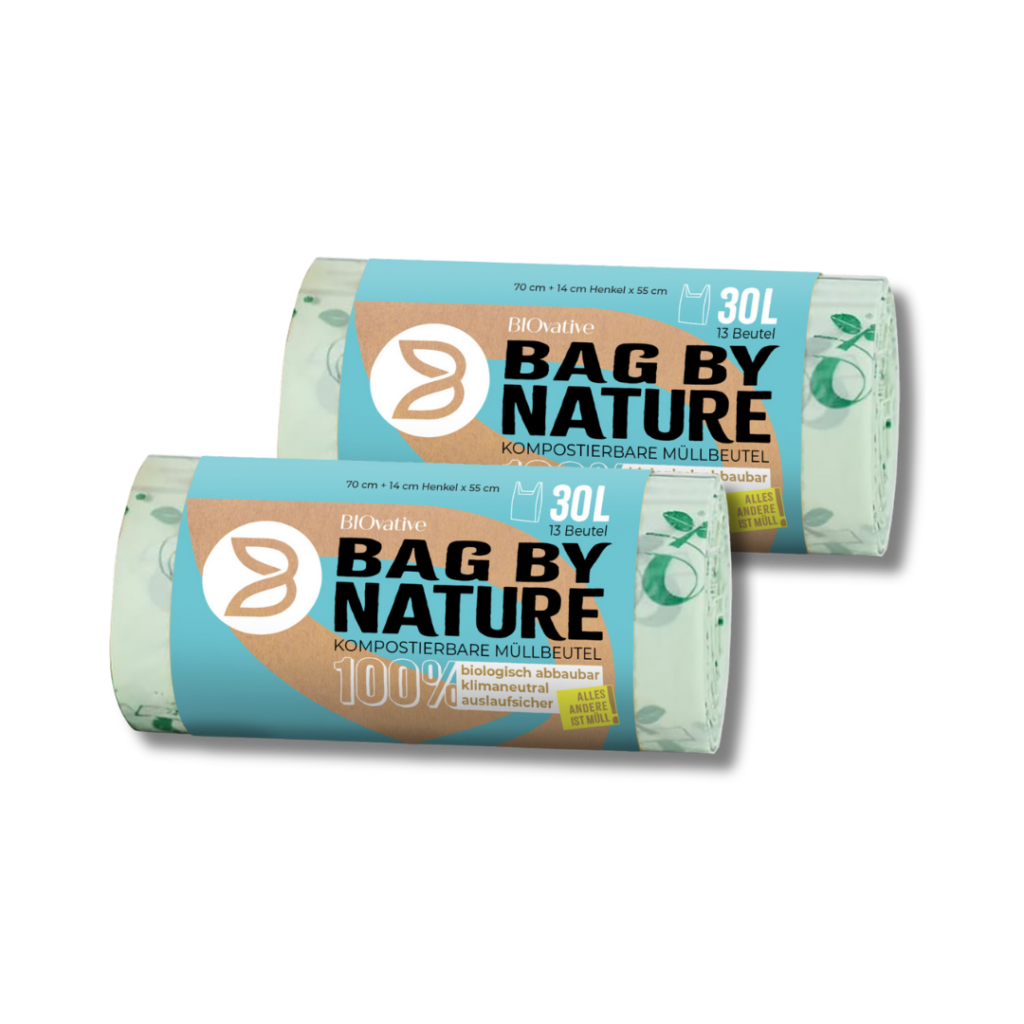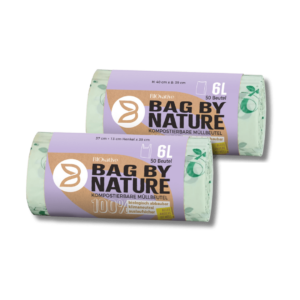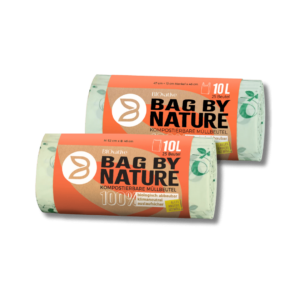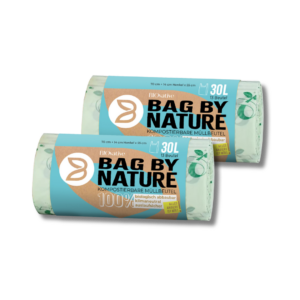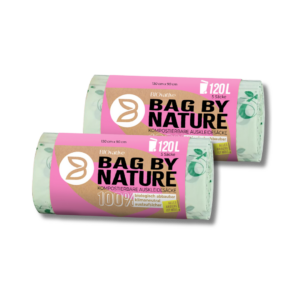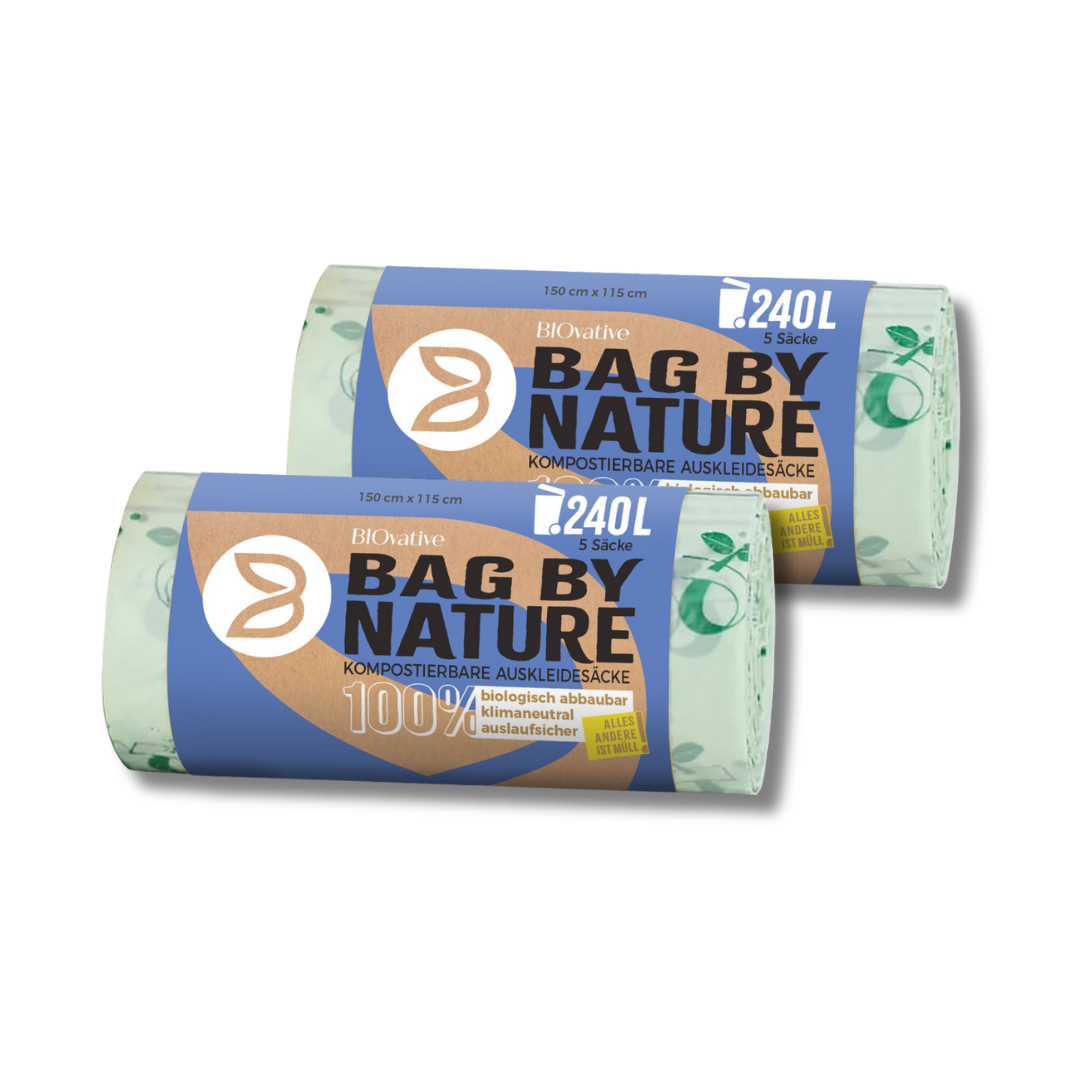With our organic waste bags, we are declaring war on microplastics and garbage islands.
Made in Germany
with renewable raw materials from Europe.
100% climate-neutral product
from production to shipping to your home.
Fully compostable
In less than 6 weeks via your organic waste bin or compost
Tear-proof & leak-proof
Up to 10x less moisture loss
Organic waste bags - What does that actually mean
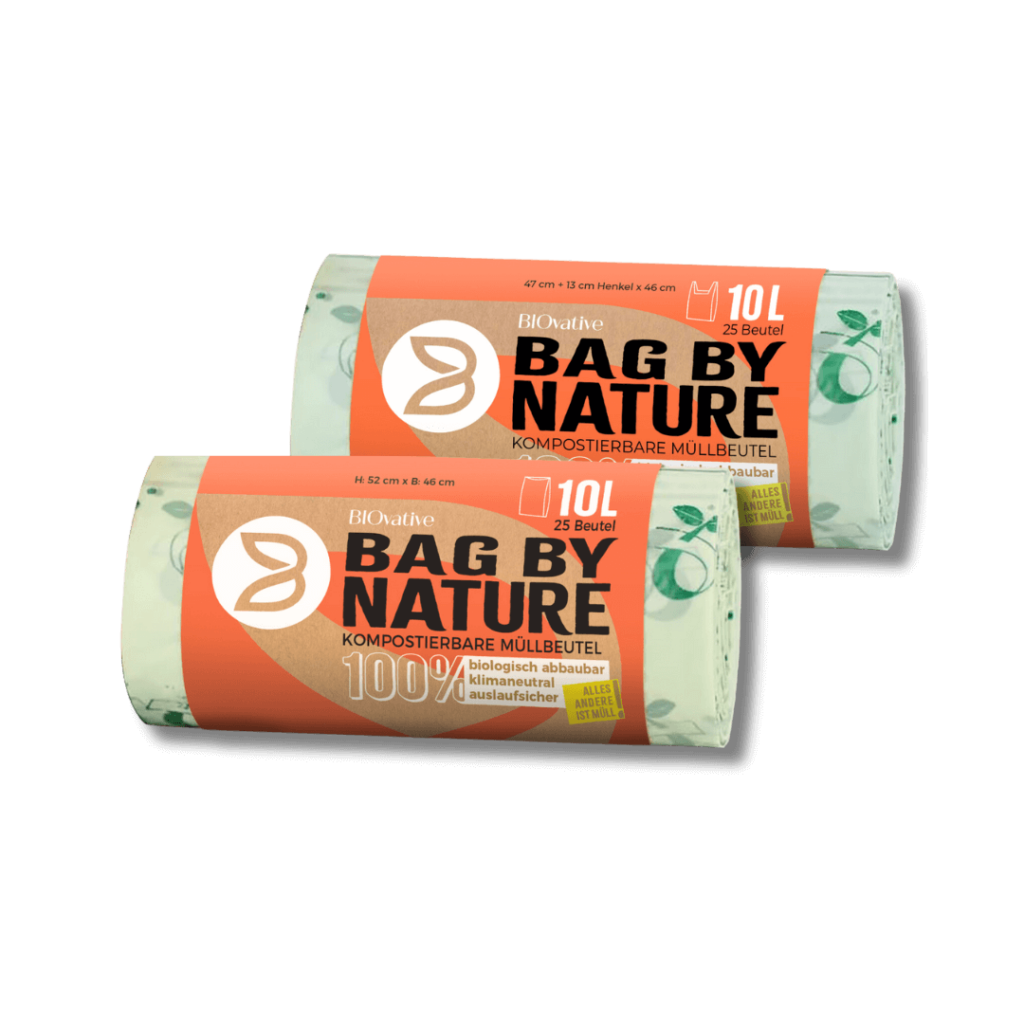
Classic plasticwaste bags are garbage.
We are all familiar with classic waste bags. In the supermarkets we get rolls of plastic bags in all colors from black to blue and green to pink. Either with or without handles, ideally with a drawstring made of plastic cord.
What was once so practical is becoming an ever greater problem, because: Plastic as the preferred material is light and leak-proof, but it is also one of the most serious causes of environmental pollution.
It takes a lot of energy in industrial incineration plants to dispose of plastic completely without leaving any residue. With huge CO2 emissions as the price.
Our organic waste bags can do this better.
Our compostable waste bags contain GMO-free corn starch. They are completely biodegradable and compostable.
Professional tests have now even proven that BlOvative organic waste bags are completely compostable even in industrial composting plants with a rotting time of 4 weeks.
In other words: with organic waste bags from BlOvative you can dispose of your waste without producing any more waste.
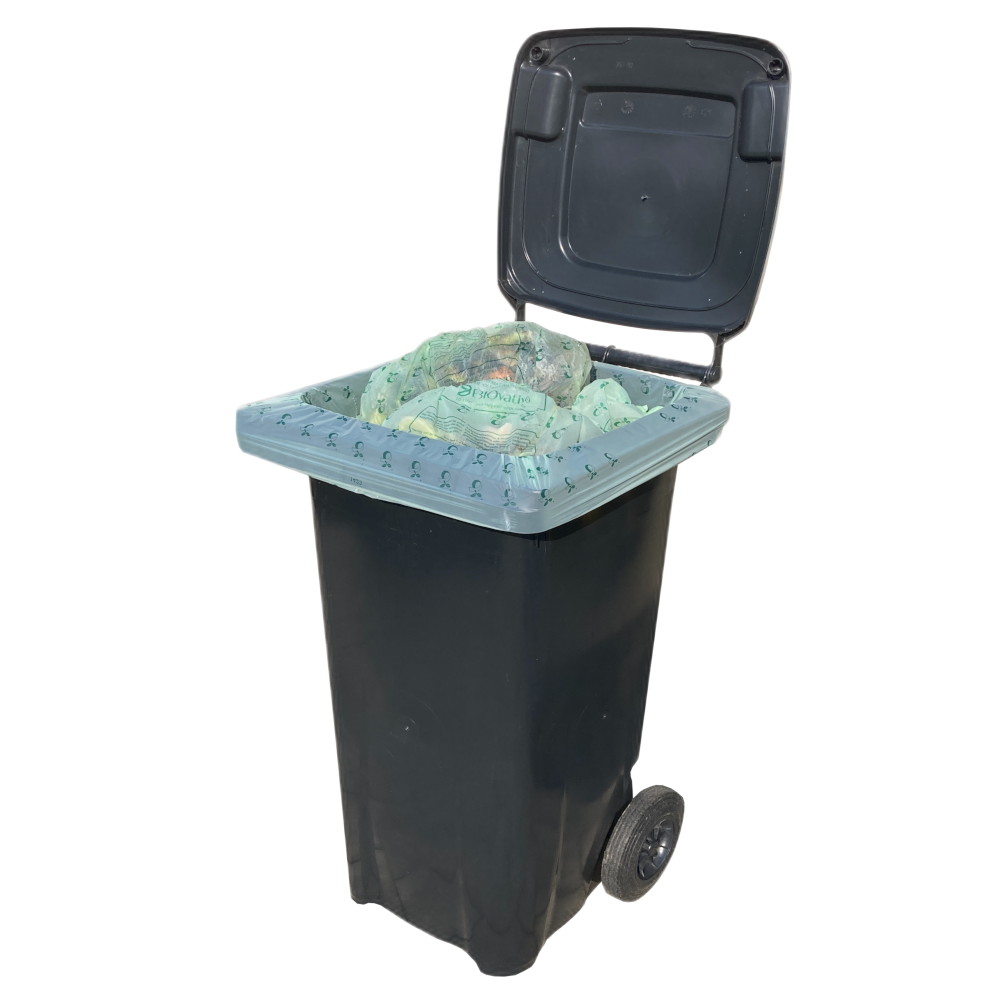
What is actually allowed in an organic waste bin?
Our organic waste bags are ideal for collecting organic waste that is disposed of in the organic waste bin.
But what can actually go in there? What about ashes, leftover food or newspaper?
You can find all the answers in our organic waste glossary.
Simply do something for the environment in everyday life
with compostable waste bags
Our organic waste bags are available in 6 different sizes:
- 6 liter bag e.g. for the cosmetics garbage can
- 10 and 20 liter bags perfect for collecting organic waste or residual waste
- 30 liter bag for your waste garbage can. Also perfect for separating toilets when camping.
- 120 and 240 liter liner bags for your waste garbage can
You can use our 6-liter organic waste bags as hygiene bags for your cosmetics waste bin, for example. Or collect your organic waste in them.
Thanks to the practical carrying handles, you can not only easily carry the waste to the garbage can, but also simply close the bags.
In the medium sizes, our organic waste bags are ideal for collecting residual waste in the waste bin.
Do you like traveling the world? Our 30-liter bags are ideal as bags for your camping toilet.
And with our liner bags for your organic waste bin, you can effectively prevent odors and maggots in your organic waste bin.
Our organic waste bags: guaranteed to be different from the rest
Our organic waste bags are proven to be biodegradable AND compostable.
Guaranteed without fraudulent labeling or greenwashing! All our organic waste bags proudly carry the certificates:
✅ DINplus
What advantage does that have for you?
- You realize that BIOvative organic watse bags are really! compostable.
- You know that you can safely throw your organic waste in BIOvative organic waste bags in the residual waste and organic waste bin (depending on the waste disposal company).
- You can rest assured that BIOvative organic waste bags are guaranteed to be compostable and biodegradable.
What does compostable or biodegradable actually mean?
The terms are not protected and are often misused. So here is a brief explanation of what you can expect:
Materials are compostable if they decompose completely within six weeks in an industrial composting plant.
Substances are considered biodegradable if they are utilized by biological processes. This means that substances are biodegradable if microorganisms can decompose these substances into waste products such as carbon dioxide (CO2), water, salts and biomass both in the air and without the addition of oxygen.
What always horrifies us: The term biodegradable can also be used for petroleum-based plastics, even though this creates microplastics. Many manufacturers are therefore greenwashing by selling conventionally manufactured plastic bags as biodegradable in order to appeal to your ecological conscience.
There are more and more organic waste bags on the market or waste bags that are sold as biobased and therefore touted as a supposedly sustainable alternative.
However, the term “biobased” is not protected by law. There are therefore no specifications as to which parts of a plastic must consist of renewable raw materials in order to be considered biobased.
This means that many waste bags are sold as a sustainable, organic alternative, although they are actually mainly made of plastic and only contain a minimal proportion of renewable raw materials.
In this article, we explain exactly how these processes work, what requirements plastics need to fulfill and what the difference is between biodegradable and compostable:
“Biodegradable, compostable, biobased, recyclable – meaning and difference”.
